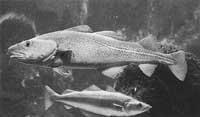Preserves blood platelets
Platelets to stop bleeding are widely used in transfusions, but when stored, unfortunately, they do not last more than five days. Unlike red blood cells, platelets are hard to freeze.

When the temperature drops below 18ºC, its phospholipids cease to be liquid and become gel. Some molecules make this transition faster than others and the cellulose membrane becomes porous, escaping calcium molecules.
The solution can come from icy seas. Due to the presence of anti-freeze agents, some fish keep the water from their frozen bodies unfrozen. California researchers have extracted glycoproteins from the blood of Arctic Ocean fish and along with them have left platelets in dissolution. Platelets have been preserved for twenty-five days at 5°C, as glycoproteins reduce the freezing temperature.





